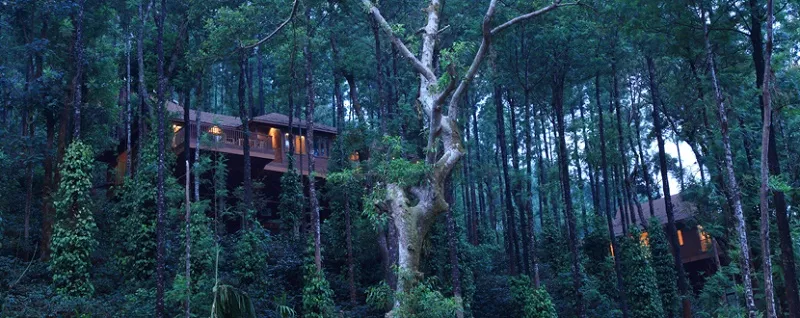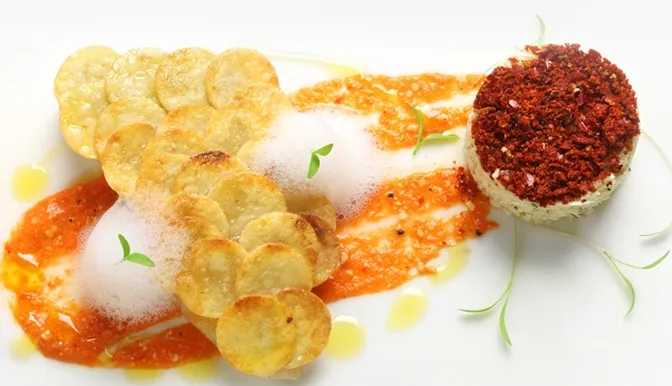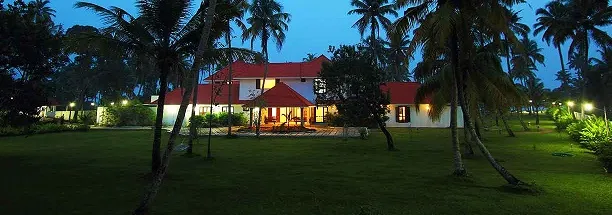Shruti Shibulal - the queen of niche hospitality
Whether you are looking for a beautiful resort nestled in the countryside of picturesque Coorg, or a cozy serviced apartment in the heart of Bengaluru for a business trip, or an eco-friendly business hotel in the backdrop of Kerala’s lush greenery, one of the hotels or resorts run by Shruti Shibulal’s The Tamara group would surely fit the bill. Shruti, daughter of Co-founder and former CEO of Infosys SD Shibulal, has carved a space for herself in the niche hospitality segment. She might own 0.64 per cent stake in the IT bellwether (that is valued at over $200 million), making her one of richest young women in the country, but Shruti is an extremely grounded person and attributes her regular upbringing to the same. “Infosys was not big when I was a child. So I had a very normal middle-class upbringing. It’s only when I was in my teens that the IPO happened, and Infosys became the IT sensation of the country.”

The Tamara Coorg, Shruti’s flagship luxury resort, is spread over a 170-acre estate that produces coffee, cardamom, pepper, and honey. Shruti says, “Our efforts have been to set up a resort where guests can have a relaxed and beautiful experience amidst nature, far from the hustle-bustle and pollution of cities, without destroying the ecosystem around.” In a time when concerns about global warming, deforestation and water crisis are affecting people the world over, responsible tourism is very important, opines Shruti. At the Tamara Coorg, most of the architecture has been constructed on stilts, which minimises cutting of trees and plants and causes minimal damage to the environment.

The birth of the entrepreneur
Shruti had started working with Merrill Lynch in New York after her graduation from Pennsylvania’s Haverford College but the call to start something on her own was too strong. Her love and interest in food led her to the restaurant business. She started Avant Garde Hospitality in 2008 in collaboration with chef Abhijit Saha, setting up popular restaurants Caperberry and Fava. Caperberry brought molecular gastronomy to Bengaluru, while Fava was appreciated for its Mediterranean cuisine. Tamara was the next logical step for Shruti.

Both restaurants and hotels bring with them their own set of challenges. Shruti says, “In restaurants everything depends on the food. However good the ambience is or however well-trained the staff is, if the food is not good, it will affect your business. Whereas in hospitality there are so many touch points. From the booking to the check-in experience, the quality of the rooms and the food, to the behaviour of the staff, everything matters.”
Shruti went back to the USA to pursue her MBA from Columbia University while doing the balancing act with projects back home. She completed the course in 2012 and has been focussing on her hotel brands spread across South India. A pet project of 31-year-old Shruti is an upcoming 150-room business hotel in Thiruvananthapuram, Kerala, slated to be ready towards end of 2017. Shruti has ensured that the construction is carried out so as to maximise energy efficiency and reduce wastage, instead of the typical heat-trapping glass facades that are coming up nowadays. This hotel is expected to receive a green rating from GRIHA (Green Rating for Integrated Habitat Assessment).
Offering a home away from home
One of Shruti’s lesser-known offerings is Lilac, a service apartment brand. Right now it has one service apartment complex in south Bengaluru, with two additional Lilac branded hotels to come up in Bengaluru and Madurai.

According to Shruti, one of her most aesthetically appealing properties is the Palma Laguna, a luxury serviced villa, located near the Vembanadu Lake in Alleppey, Kerala. The design incorporates Kerala architectural elements, and is built in the traditional naalukettu style with an open, central courtyard which provides for natural lighting and airy interiors.
Strength Weakness Opportunity Threat
Shruti feels expansion depends on a lot of factors, from whether the existing projects have broken even, to the bandwidth of the team, to current market conditions. It is a tricky call that requires a lot of thought.
The biggest challenge that both luxury and mid-level players are facing today are the entrants of brands like AirBNB and OYOrooms. AirBNB got thousands of rooms into the market overnight. Also, web portals like Tripadvisor ensure that people give priority to good reviews over reputed brand names. “But the competitiveness is fun,” says Shruti. There is no room for complacency and there is certainly more scope for creativity. It is a great time for the guests though, she says with a smile, since they are going to get pampered from all sides.
One tip she has for entrepreneurs in the hospitality space,
Invest in your staff. If your staff is well taken care of and happy, they will genuinely take the effort to take care of the guests and your customers will have a wonderful experience.
The family equation
One trait she admires in her father Shibulal is his equanimity. However high his workload was he always made it a point to spend quality time with Shruti and her brother during their childhood. Her mother, Kumari Shibulal, is one of the most empathetic people she knows. “All the philanthropic work she undertakes comes so naturally to her since it goes with her innate ethos,” says Shruti.
Fitness is part of Shruti’s lifestyle. She stays active even when she is travelling. Though a foodie at heart who loves dining out, when she is at home her diet is light and organic.
Her advice to women entrepreneurs is, “Be prepared to push yourself to the core. The journey is tough but it is also fun. You can learn and grow as a person as your brand grows. Having a strong support system will be helpful. Nowadays, it is easier to start up in the hospitality space.”
She loves to travel whether on work or pleasure and her favourite destinations are Ireland, Japan and the Galapagos islands. Doesn’t she keep taking mental notes when she travels to other properties, I quiz her. “I do,” says Shruti with a laugh, “but that doesn’t mean I don’t have a great time.”







